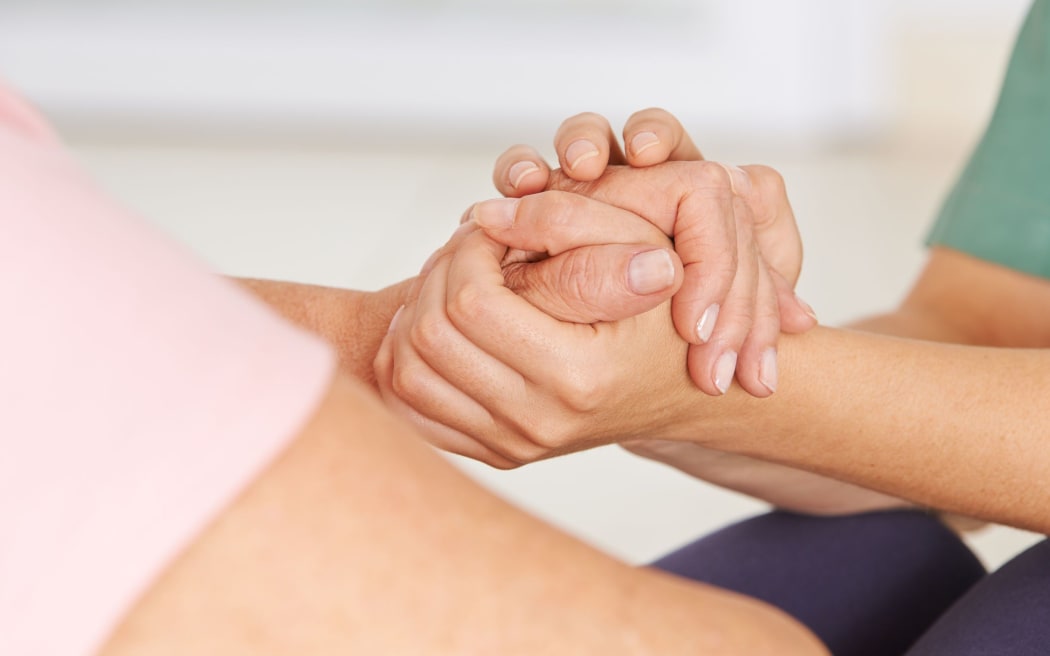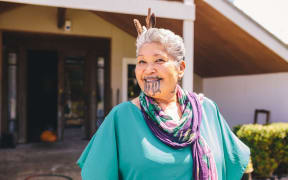By Chris Ford*
Opinion - On Sunday, the End of Life Choice (EOLC) Act came into effect.

Disability advocate Chris Ford says he would like to see protections around the voluntary euthanasia process strengthened over time if there are found to be flaws with it. Photo: 123rf.com
This new legislation will potentially impact thousands of New Zealanders, especially those who are experiencing terminal health conditions with a life expectancy of less than six months and who are undergoing "unbearable suffering". Those preconditions are essentially the bar for the ability of any person aged 18 and over to request voluntary euthanasia.
As readers of my past opinion pieces on this subject may know, I was originally supportive of the legislation but then re-considered and came out against.
Now, I have to say that I'm nervous and apprehensive as the EOLC takes effect but somewhat resigned too as the genie has now been let out of the bottle on euthanasia in this country.
Given the practice will be harder to reverse once it becomes embedded (as has been the case in countries which have previously adopted similar laws) it will be vital to ensure the legislation is not further extended to cover, for example, people with psychosocial disability/mental distress or children and young people under the age of 18, which has happened on both counts in recent years in Belgium and the Netherlands.
Some of the EOLC Act's key proponents have vowed they will seek to have the law amended at the first available opportunity, which could be before or after the first mandated review of it is completed in five years' time. Therefore, those among us who opposed voluntary euthanasia should be on our guard in relation to this.
In the meantime, while I accept that referendums sometimes render harmful outcomes for minority groups - which in my view the EOLC referendum certainly did for disabled people and people with health conditions - as a good democrat I also accept the verdict that was rendered by the electorate last year. For that reason, I want it to be a case of here and no further with the law.
I would like to see protections strengthened over time around the voluntary euthanasia process if there are found to be flaws with it - and there inevitably will be.
I forsee huge legal battles ahead - including those around the definition of unbearable suffering - and if someone were to take up a test case before the courts on this aspect, this could open up the number and groups of people who could become eligible for voluntary euthanasia by default.
I hope that in any battles to come, the courts will be mindful of the requirement in the act for necessary protections to be observed, so the legislation is not abused or misused.
I believe there will be mistakes made under the law as even its keenest parliamentary champion, Act Leader David Seymour, has admitted there could be the potential for this to happen. There could be mistakes made such as, for example, the discovery that inappropriate pressure was externally applied to someone to influence their decision on euthanasia.
If this were to happen (and I hope it doesn't and that the mental health assessment phase will be able to capture this), I do hope the Ministry of Health could pause voluntary euthanasia procedures until any such case was reviewed and further safeguards were put in place.
Yet, even as I write this, the question still comes into my mind - will we ever truly know that each and every person who opts to take this path has done so of their own free will?
I believe there is no guarantee we will ever know for sure that every person who applies for euthanasia will have definitely made that decision of their own volition. I hope that the vast majority of people will have done so without coercion but my fear is that some (including a not disproportionate number of older and disabled people) will be at greater risk of manipulation by well-meaning (and perhaps not so well-meaning) family/whānau, friends, and other networks, meaning that effectively they will have had no choice in the matter.
That's why I will be looking at the early statistics of people who have ended their lives under the EOLC process to see whether any clear patterns emerge.
I will be particularly interested to see the age, ethnicity and gender composition of the people who do so, their geographical locations and - most importantly for me - whether they self-identify as people who live with pre-existing disabilities/health conditions/impairments which they have had prior to contracting terminal illness. I hope the ministry will collate disability data around this too as they are often remiss in doing so when it comes to other health-related data.
Nevertheless, I'm taking a wait-and-see-whilst-not-holding-my-breath approach towards voluntary euthanasia's arrival in Aotearoa. That's why I await the first outcomes of the EOLC Act with both interest and concern.
*Chris Ford is a Dunedin-based disability advocate, writer and researcher who identifies as a disabled person. He works as senior kaituitui (community networker) for Disabled Persons Assembly New Zealand and has been an independent commentator. This article reflects his own views.






